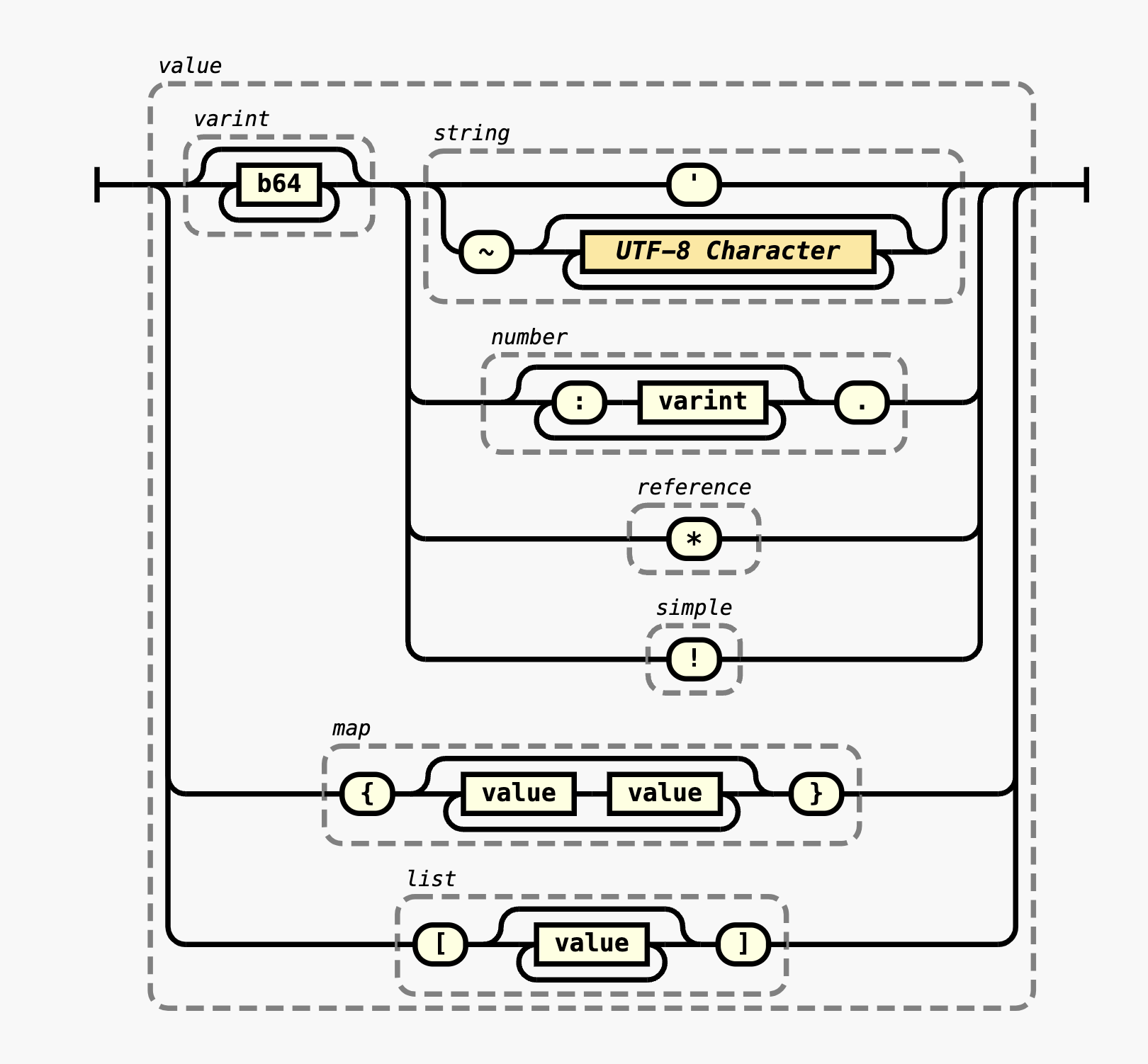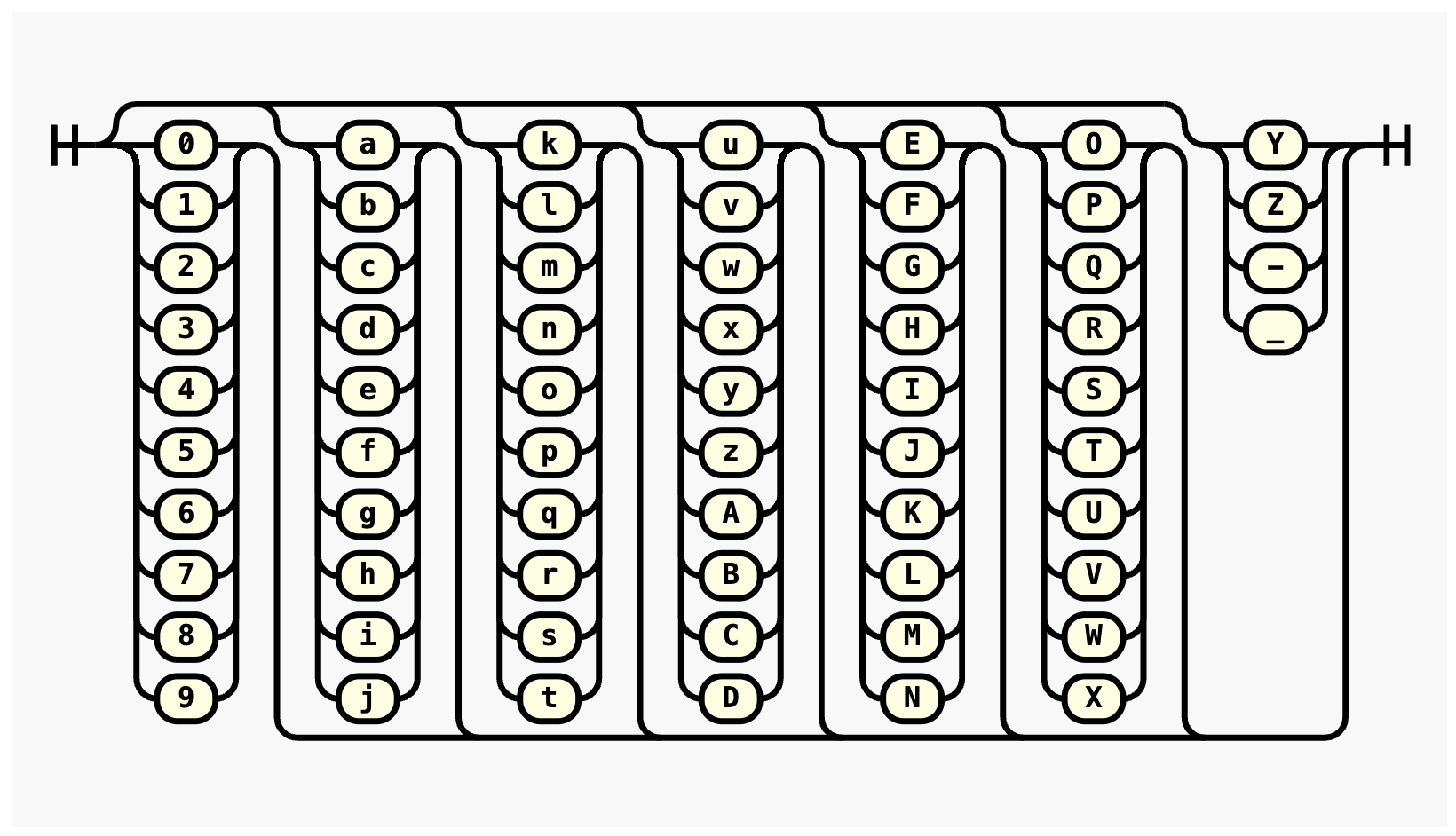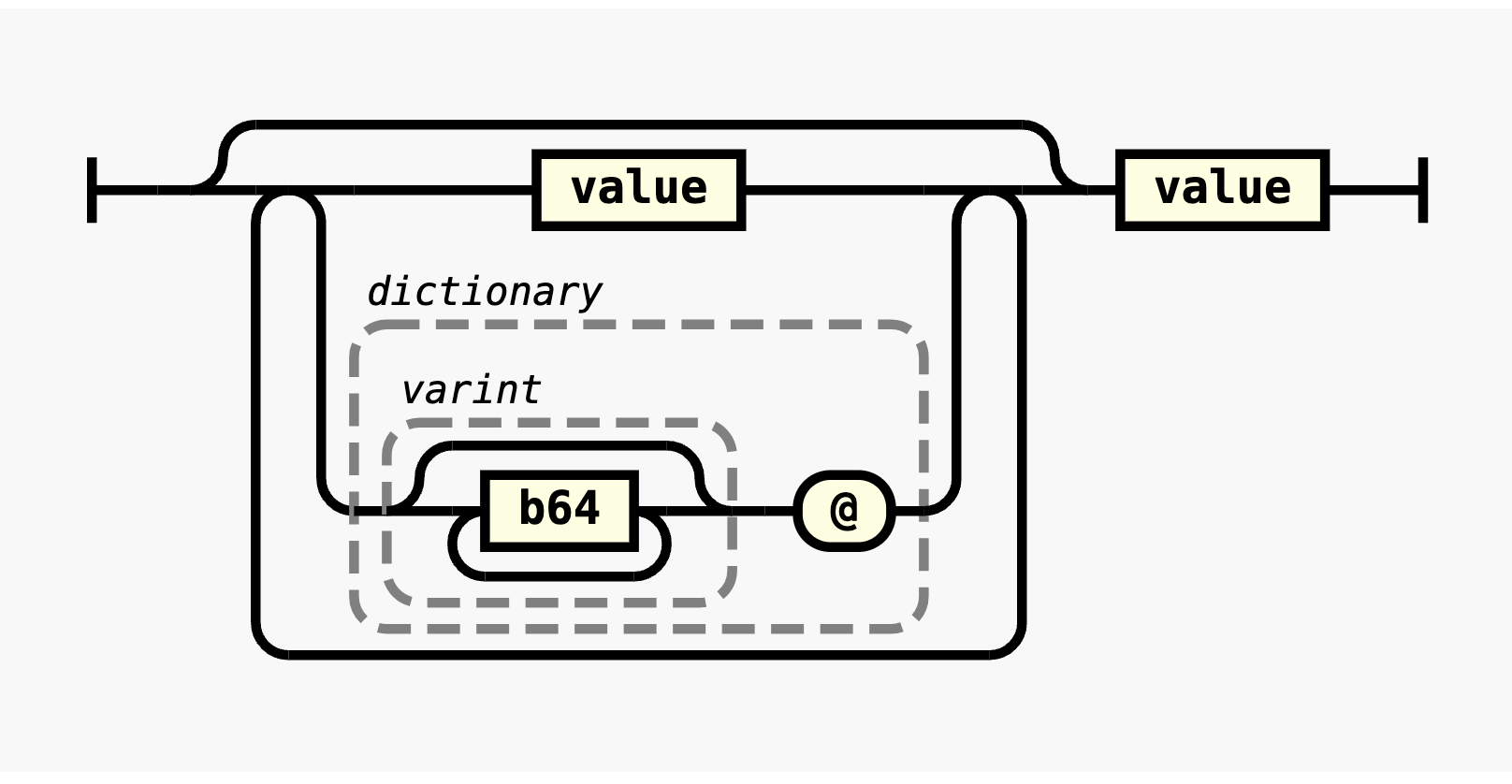El sobrinito de JSON
JSONito (or Jito for short) is a close relative of the JSON serialization format — think of it as JSON’s little nephew. While JSON was optimized as a subset of JavaScript, striking a balance between machine-readability and human-friendliness, Jito tips the scales a bit more toward the machine. The result? Documents that are typically 50% smaller!
Additionally, the character set has been chosen with care to embed seamlessly inside JSON strings, URL query strings, HTTP headers, or anywhere you might want to tuck away a little piece of configuration as text.
This is published to npm as both an ESM and a CJS module, so you can use it with either.
npm i --save jsonitoYou can require it from a node CJS script.
const JSONito = require('jsonito')
// or
const { stringify, parse } = require('jsonito')You can import it from a node ESM.
import * as JSONito from 'jsonito'
// or
import { stringify, parse } from 'jsonito'Or just copy the JS file to your website and import it using browser native imports.
<script type="module">
import * as JSONito from './deps/jsonito.js'
// or
import { stringify, parse } from './deps/jsonito.js'
...
</script>Or copy the typescript source into your typescript project and import
import * as JSONito from './deps/jsonito.ts'
// or
import { stringify, parse } from './deps/jsonito.ts'If you want to jump right on in and use this as a JSON replacement, this module exports stringify and parse functions.
const doc = {
name: "JSONito",
nickname: "Little Jito",
new: true,
magic: 42,
colors: [..."🟥🟧🟨🟩🟦🟪"],
}
const jito: string = JSONito.stringify(doc)
const decoded: unknown = JSONito.parse(jito)The value is printed with no spaces by default for compactness:
{name'JSONito'nickname'b~Little Jitonew'!magic'1k.colors'[2~🟥2~🟧2~🟨2~🟩2~🟦2~🟪]}
But coming soon is an option to pretty-print as well
{
name' JSONito'
nickname' b~Little Jito
new' !
magic' 1k.
colors' [
2~🟥 2~🟧 2~🟨 2~🟩 2~🟦 2~🟪
]
}
So it's smaller, but by how much you ask? And does it make parsing slower?
This benchmark measures encoding and decoding a large collection of public pokemon information which ends up being around 1 MiB of typical JSON content.
You can see the latest results in every CI commit to guage performance over time as we optimize this implementation.
| Metric | JSON | JSONito | Relative Comparison |
|---|---|---|---|
| Parse Time | 4.05 ms | 7.92 ms | JSONito parse is 1.95x slower |
| Stringify Time | 1.64 ms | 29.09 ms | JSONito stringify is 217.78x slower |
| Encoded Size | 1.33 MiB | 239.43 KiB | JSONito encoded is 5.70x smaller |
| JS | JSON | JSONito | Comment |
|---|---|---|---|
0 |
0 |
. |
Integers |
-1 |
-1 |
1. |
|
1 |
1 |
2. |
|
-25 |
-25 |
N. |
|
2000 |
2000 |
-w. |
|
-125000 |
-125000 |
Z2f. |
|
8654321 |
8654321 |
121Ly. |
|
20.24 |
20.24 |
3:_g. |
Decimal |
1e100 |
1e100 |
38:2. |
|
-1e-200 |
-1e-200 |
6f:1. |
|
Math.PI |
3.141592653589793 |
t:mkEokiJF2. |
|
Math.sqrt(3) |
1.7320508075688772 |
v:1X4t8mn8q8. |
|
true |
true |
! |
True |
false |
false |
F! |
False |
null |
null |
N! |
Null |
'' |
"" |
~ |
Empty String |
'Banana' |
"Banana" |
Banana' |
B64 String |
'Hi, World' |
"Hi, World" |
9~Hi, World |
String |
'🍌' |
"🍌" |
2~🍌 |
Unicode String |
[ 1, 2, 3 ] |
[1,2,3] |
[2.4.6.] |
Lists |
[ 100, 100, 100 ] |
[100,100,100] |
38.[***] |
Lists with Pointers |
{ a: 1, b: 2, c: 3 } |
{"a":1,"b":2,"c":3} |
{a'2.b'4.c'6.} |
Maps |
[ { name: 'Alice' }, { name: 'Bob' } ] |
[{"name":"Alice"},{"name":"Bob"}] |
name'[{*Alice'}{*Bob'}] |
Repeated Keys |
new Map([[1,2],[3,4]]) |
N/A | {2.4.6.8.} |
Non-string Keys |
At its core, Jito's syntax revolves around the value. This can encode the same data types as JSON: string, number, boolean, null, map, and list.
Jito does away with delimiters like : or ,, and whitespace is entirely insignificant—giving you the freedom to format as you please. And yes, comments are welcome in Jito's house (even if Uncle JSON wouldn’t allow them).
Containers are still enclosed by {, }, [, and ], just like in JSON. However, everything else is prefixed by a Base64 integer followed by a type tag.
One of the key ways Jito reduces encoding size is by allowing repeated values to be written just once and then referenced later. This is achieved by prefixing a value with zero or more other values — each one in the chain can reference any previous values.
For even more extreme size compaction, external dictionaries of predefined values can be employed by the encoder. The encoder must assign an ID to the set, which is then included as a dictionary value capable of replacing zero or more repeated values.
Finally, while JSON had to be extended with NDJSON to support streaming values, Jito has streaming built right in. Simply insert ; between documents to delimit them, and feel free to include newlines since they hold no significance in the syntax.
Happy encoding with JSONito—the little nephew who’s big on efficiency!






